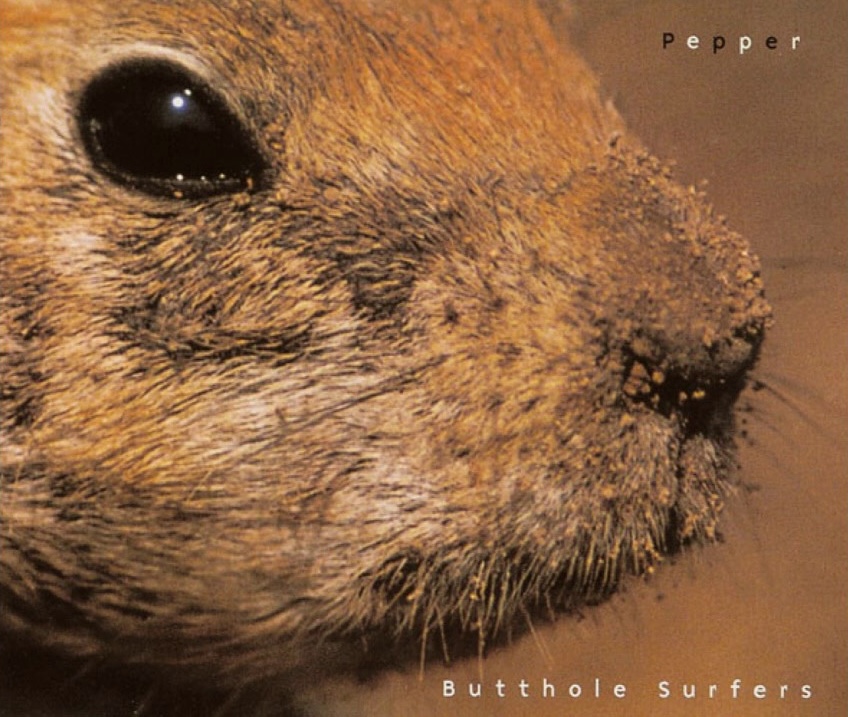At this point, I start looking forward to it in early December: The latest in the Get Pumped series, the Baltimore club music survey that DJ Angelbaby throws up online every year on New Years Day. Vol. 1 and Vol. 2 were both ridiculously fun and propulsive and packed with so many tracks that some of them breezed by before you'd realize that they'd started. Vol. 3 is exactly the same. Club music, you see, does not change. It's the most mercenary and repetitive and obstinately static form of dance music that there is. Baltimore club, if you don't know, is a form of black house music that started in Baltimore, my hometown, sometime in the late '80s or early '90s. For a long time, when Baltimore just wasn't producing notable rappers, it served as the city's own homegrown rap alternative, much like go-go in D.C. And as with D.C., Baltimore is finally starting to spawn underground rappers that, at the very least, are capable of drawing big crowds at home, but club music bangs on. It's barely changed, even as a few different new generations of DJs and producers and fans have come and gone. It still relies on hard, skittering breakbeats and bold, obvious samples and borderline-obnoxious chanted refrains. The new Vol. 3 could be confused for either of the previous two if not for the more-recent rap-anthem samples that come up every few minutes. That's fine. It's great, even. If you come from Baltimore and you're under 40, even an all-new club music mix will punch you right in the nostalgia bone. And if you don't, it's still a thrilling bare-bones form of dance music, one that stubbornly prizes momentum and immediacy and raw impact over melody or sweep or texture. Club music may not be advancing, but that doesn't mean it's not healthy.
Actually, I'm exaggerating. Club music has gone through a few waves of innovation, and you can hear some of that on Get Pumped, Vol. 3. Philadelphia and New Jersey both built up their own club music scenes in recent years, and Angelbaby generously includes their tracks in her mixes, something other Baltimore DJs have historically been reluctant to do. Vol. 3 even has a pretty good Dej Loaf remix from Nick Catchdubs, the Jersey-reared Fool's Gold co-founder who, as far as I know, hasn't tried his hand at club music before. Newark, in particular, has done some fascinating new things with club music, injecting an oblique melodicism that wasn't there before. And there's been enough mutual influences that, during a blind listen to Vol. 3, I can't tell what comes from Baltimore and what doesn't. Baltimore also has smart and weird club producers like Schwarz and James Nasty, guys who stick with a fundamental club music sound but still find ways to zig when you're expecting them to zag. Still, if you'd been somehow trapped in amber and hadn't heard any Baltimore club in 10 years, there's nothing on Vol. 3 that would leave you whimpering in a corner. Baltimore club is a genre with plenty of room for play but not much for base-level change.
Instead, part of the fun in hearing a new club music tape is in hearing what the Baltimore club production braintrust has done with the past year of rap music. Club music lives and dies on uncleared samples, and anytime a rap single reaches a certain saturation point, it's a fair bet that someone will find a way to turn it into a club anthem. Early on in Vol. 3, we get two different back-to-back remixes of Drake's "Trophies," which has a triumphant horn line that's more or less built for club. Beyoncé is a frequent presence, too, and I love how Mighty Mark realized that all you really needed to keep from her already-minimal "7/11" was the "legs moving side to side / smackit smackit in the air" bit. Vetaran DJ Booman, meanwhile, is smart enough to realize that the "they knoooow better" bit from Rae Stremmurd's "No Flex Zone" is the key to any club version. A new Mighty Mark version of Shy Glizzy's "Awwsome," a track that was bigger in Baltimore than it was in Glizzy's D.C. hometown, makes for maybe the best track on the whole mix. And in Lor Scoota's "Bird Flu," Baltimore finally has a homegrown rap anthem that's recognizable and immediate enough to demand its own club remix. I can't remember that ever happening with a Baltimore rapper's song before.
On the other side of things, I am delighted to report that Lil Jon's voice is still a favorite sound effect for club music producers. Especially in light of Lil Jon's recent dance-music rebirth, it feels weirdly comforting to year YAAAYUHs and WHUTs all over Vol. 3. But I'm just as happy to point out that the mix has no club-music version of "Turn Down For What"; there's just no way that could've worked out. Club music O.G. DJ Class does, however, contribute a weird and shockingly effective club-music remix of Disclosure and Sam Smith's "Latch." That one shouldn't work, but it somehow does. Even if it fell flat, though, it would be over in less than two minutes. And in the end, that's one of the great things about virtually any club music mix, Vol. 3 very much included. Baltimore club is so propulsive and hook-based that producers don't even worry about things like building an arc or taking you on a journey. It's all adrenaline, all the time. Vol. 3 blasts through 40 tracks in under an hour, and by the time it's over, you're out of breath, panting. That's the idea.
Download Get Pumped Vol. 3 at DatPiff.






